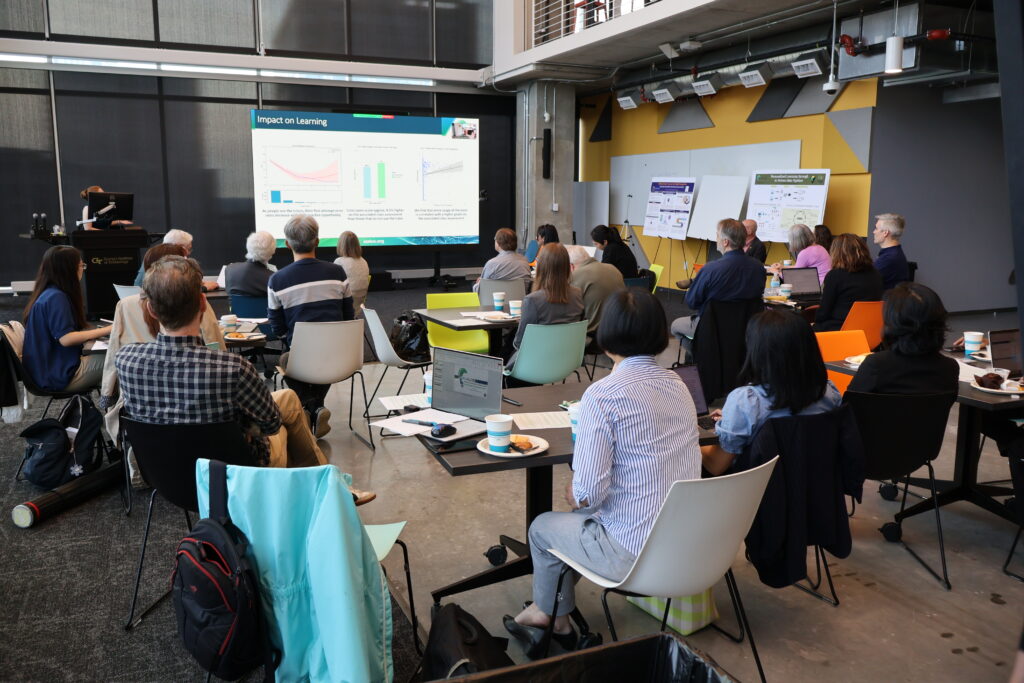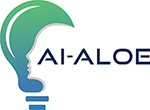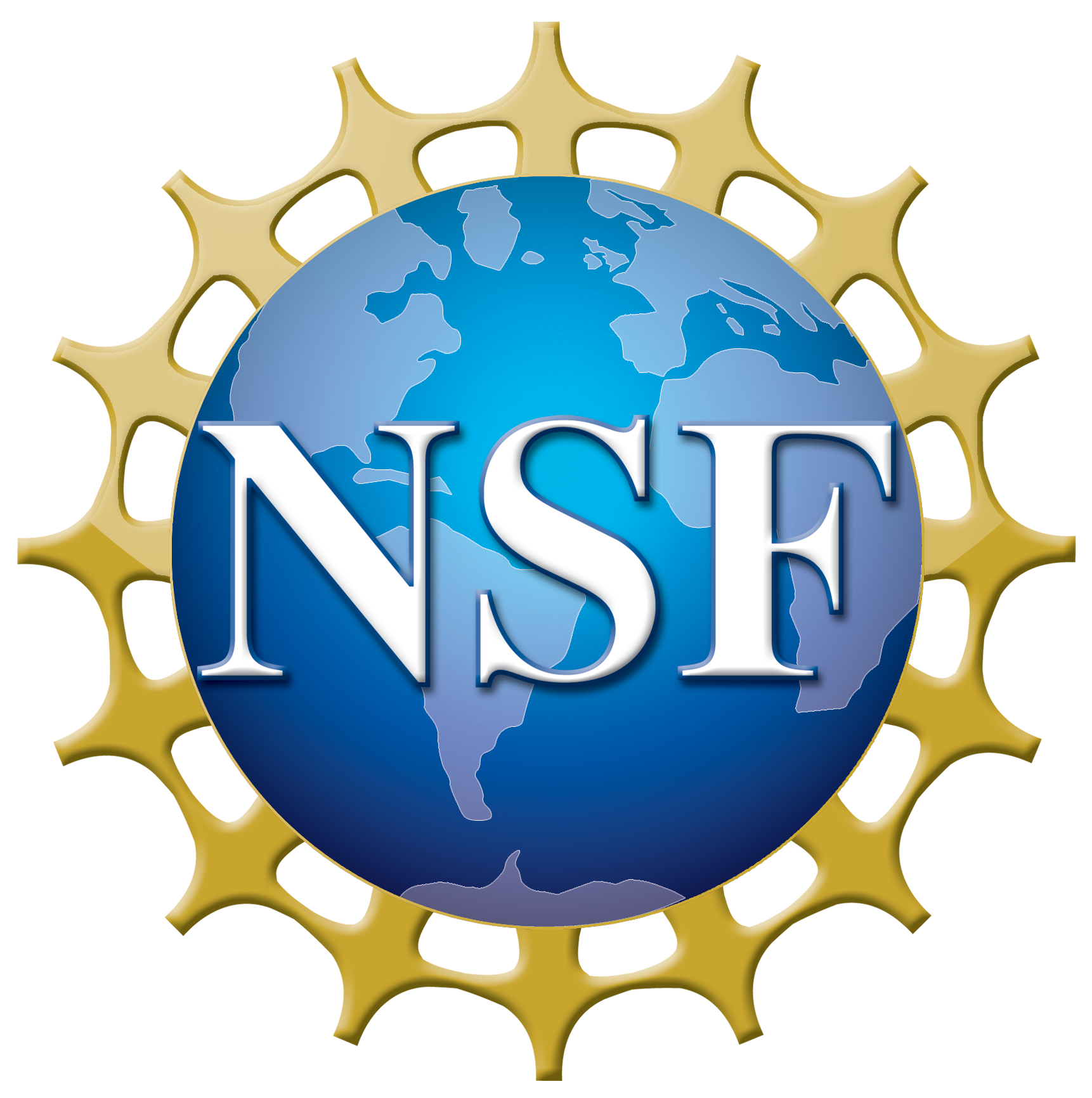The AI-ALOE Institute convened its annual External Advisory Board (EAB) meeting last week at the Coda Building in Atlanta, highlighting a full day of presentations, discussions, and posters that reflected the Institute’s progress in its fourth year of operation. More than 30 members of the AI-ALOE team, including several virtual participants, gathered to present their work, engage in dialogue, and receive feedback from the EAB.

Presentations Organized Around Five Core Themes
The meeting featured 22 five-minute talks grouped into five thematic categories representing AI-ALOE’s evolving research and development priorities:
- Impact on Learning
Researchers presented projects such as TCSG curriculum integration, Apprentice Tutor, iTELL, Jill Watson, and SMART. These projects highlighted AI-ALOE’s influence on student engagement, learning outcomes, and personalized support. - Iterative and Integrative Design
Talks in this session focused on user-engaged design and data visualization, with updates from the Ivy platform demonstrating adaptive and flexible interface development for intelligent learning tools. - Contributions to Data Architecture
Projects like A4L, SAMI, and VERA shared insights into how AI-ALOE is leveraging meso-level learning data to enhance system scalability, analytics, and adaptability. - Theories of Learning and AI
Presenters introduced emerging theoretical frameworks—including a theory of self-explanation in AI agents, and a theory of zero-shot learning in generative conversational agents—underscoring the Institute’s commitment to foundational AI research. - Design Heuristics for Building AI Agents
A panel discussion covered design lessons learned from building AI agents like Apprentice Tutor, iTELL, Jill Watson, and SMART, offering practical heuristics for future development.
Posters, Panels, and Positive Feedback
In addition to the talks, a poster session showcased projects spanning the Institute’s diverse initiatives, while panels facilitated deep discussion following each presentation block.
AI-ALOE faculty, staff, and students engaged in dynamic conversations throughout the day, culminating in an afternoon session for the EAB to provide feedback. Board members shared praise for both the quality and breadth of work presented.





